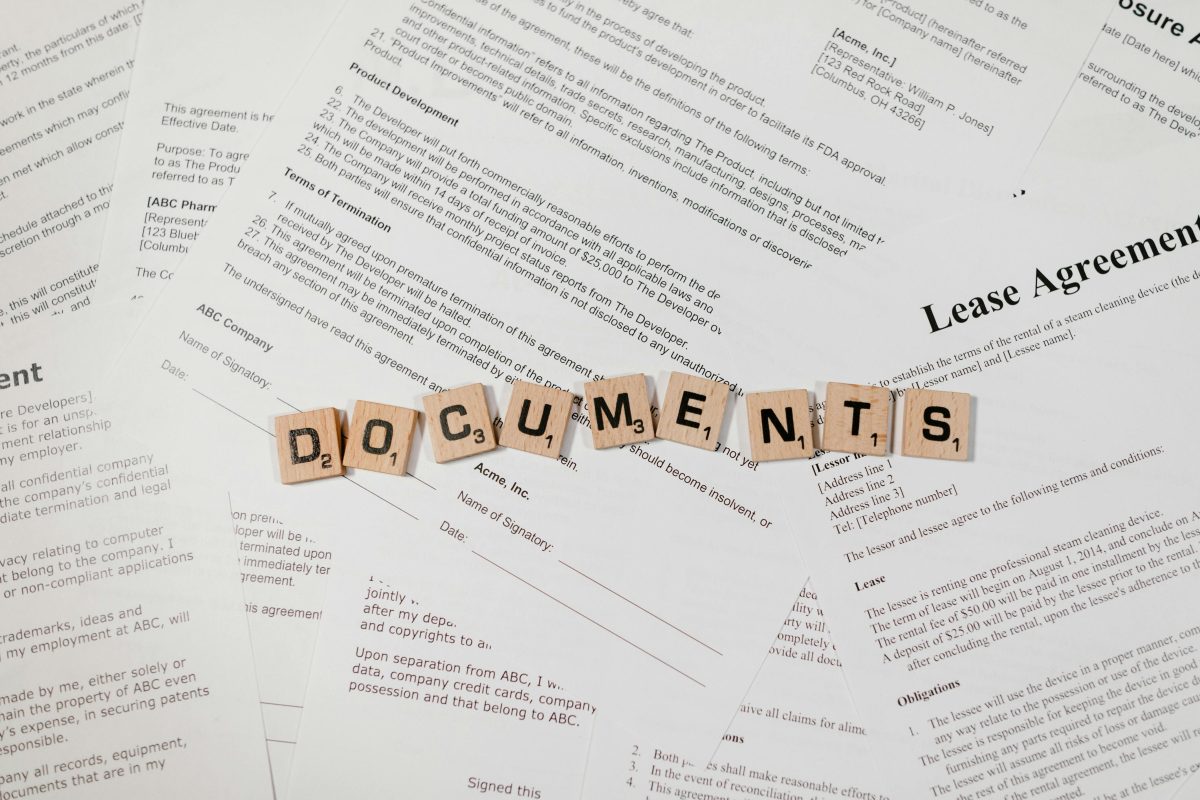Investors acquiring enterprise and financial risks to be aware
In the increasingly competitive and complex business environment, mergers and acquisitions (M&A) have become an essential strategy for investors to expand their scale, enhance value, and seize new market opportunities. However, alongside the promising potential, this process also carries numerous risks, particularly financial risks, which can directly affect the success of the transaction. Therefore, to ensure sound investment decisions, identifying and managing financial risks during the acquisition process is crucial.
This article aims to help investors gain a deeper understanding of the potential financial challenges and how to mitigate risks, thus optimizing the benefits of M&A transactions.

1. Principle of inheritance of rights and obligations
Currently, besides establishing new enterprise, the trend of acquiring partial or full ownership stakes in other enterprise is gaining popularity among investors. With an acquisition, the investor will take over the enterprise and inherit its commercial advantages, intangible assets, and become the legal owner of the company’s assets. However, the acquisition also carries many risks, the nature of the enterprise is that it is the party named in the contracts, and the party directly fulfilling administrative obligations with competent state authorities. Through the acquisition transaction, the business does not cease to exist but merely undergoes a change in ownership. As a result, we can see that in practice, many cases arise where, after completing the acquisition, the business under new ownership still has to bear the responsibility for obligations incurred before the transfer. At the same time, third parties or competent state authorities have a legitimate basis to require the business to take responsibility for obligations incurred before the transfer. On the buyer’s side, depending on the provisions in the share purchase agreement, the buyer may have the right to demand that the seller of the shares or equity bear full responsibility for compensating the buyer for any damages incurred.
2. Financial obligation risks that the buyer needs to be aware of
Risks arising from non-compliance with accounting practices, reviewing of financial records are critical steps in the process of conducting financial due diligence. This helps the buyer gain a comprehensive and accurate understanding of the company’s financial performance. This process not only ensures transparency but also helps identify potential risks related to accounting records and financial obligations. During this process, the buyer must consider the following key points:
- Fixed assets: These are crucial elements that reflect the value and potential of the enterprise, so the buyer needs to conduct a thorough examination. This includes reviewing the list of assets reported in the financial statements, such as machinery, equipment, real estate, and transportation vehicles, to ensure completeness and accuracy. Additionally, the buyer must verify the legal ownership of these assets to ensure there are no disputes or encumbrances, such as mortgages. Finally, the actual condition and depreciation level of the assets should be checked to match the information in the records, ensuring transparency and accuracy.
- Cross-checking liabilities: This is an essential step when reviewing financial records to ensure that the company has not overlooked any financial obligations. First, it is necessary to confirm the balances of receivables and payables with partners, suppliers, and customers to have a clear understanding of the current financial situation. Next, thoroughly examine the payment terms of outstanding debts, including both overdue and due debts, to identify any risks that may affect cash flow. Finally, attention should be paid to potential liabilities, which are financial obligations that have not yet been formally recorded but may arise in the future. These steps help ensure transparency and minimize financial risks when evaluating the target company.
- Reviewing accounting items: This is an important step to ensure transparency and legality in the company’s financial transactions. First, it is necessary to verify revenue by cross-checking the data recorded in the books with business contracts and sales invoices to ensure compliance with accounting standards. Next, reviewing expenses helps to determine the validity of the recorded amounts, eliminating any fraud or errors. At the same time, it is essential to evaluate adjustment entries or account transfers to ensure that they are carried out transparently and accurately. Most importantly, all accounting transactions must fully comply with current legal regulations and accounting standards, providing a solid foundation for the transparency and reliability of the financial statements.
Risks from tax obligations and contributions to the state budget: When conducting financial due diligence in an M&A transaction, the buyer must carefully review the target company’s tax compliance to assess its adherence to legal requirements. This includes checking corporate income tax and value-added tax (VAT) to ensure they have been properly declared and paid on time. In addition, obligations related to land and property taxes must also be evaluated, particularly any unpaid tax liabilities or financial obligations owed to government authorities. Furthermore, the company’s history of tax penalties is an important factor in identifying any violations that may affect its reputation and financial situation.
Risks from other financial obligations – Loans, third parties, and employees: In addition to tax obligations, the buyer must comprehensively assess other financial obligations of the company. For bank loans or credit institution borrowings, it is crucial to examine the loan documentation, including the loan amount, interest rate, term, and repayment status. It is important to clearly identify any assets or rights that have been pledged as collateral, as well as any financial obligations arising from credit agreements or business partnerships. Additionally, the buyer should carefully review any outstanding payments to suppliers, investors, or third parties to avoid undisclosed financial risks. Obligations to employees, including wages, social insurance, and labor disputes, must also be thoroughly evaluated to ensure that the company is fully meeting its responsibilities towards its staff.
3. Consequences for the buyer when there is a lack of care in appraisal
In terms of finance, when due diligence is not conducted carefully, the buyer may face serious issues related to hidden financial obligations that the target company has not disclosed. For example, the company may have bank loans, overdue debts with suppliers, or obligations that have not been officially recorded in the financial statements. These liabilities will become the buyer’s responsibility once the transaction is completed. Additionally, issues like unstable cash flow, such as uncollectible receivables or large overdue debts, may reduce the company’s operational capacity and cause significant financial losses for the buyer.
In terms of legal matters, failing to thoroughly review the legal status of the target company can lead the buyer to face serious violations. This includes issues related to taxes (e.g., failure to pay taxes on time, incomplete tax declarations), land ownership disputes, or labor violations such as failure to pay social insurance for employees. These violations can not only result in significant fines but may also lead to complex lawsuits, wasting time and money, and damaging the buyer’s reputation.
In terms of operations, mistakes in valuing the target company often stem from failing to identify mortgaged assets, disputes, or incorrectly assessing the actual condition of fixed assets. This leads the buyer to pay more than the true value of the company and also bear additional costs to resolve arising issues. Furthermore, unclear financial obligations, such as complex credit agreements or hidden operational costs, can disrupt business operations and impact the buyer’s development goals post-M&A.
Thus, it can be seen that financial due diligence is a critical step in any M&A transaction, helping the parties involved gain a comprehensive understanding of the financial situation of the target company. This process not only allows the buyer to accurately assess the true value of the business but also helps identify potential risks, such as undisclosed debts, hidden financial obligations, as well as issues related to cash flow and capital efficiency.
Performing thorough and systematic financial due diligence will enable the buyer to negotiate more effectively, protect their interests, and make strategic investment decisions. In a dynamic market like Vietnam, careful preparation through collaboration with professional appraisal firms will be the key to helping businesses mitigate risks, ensure success, and optimize value in each M&A transaction.
Time of writing: 21/11/2024
The article contains general information which is of reference value, in case you want to receive legal opinions on issues you need clarification on, please get in touch with our Lawyer at info@cdlaf.vn

Why choose CDLAF’s service?
- We provide effective and comprehensive legal solutions that help you save money and maintain compliance in your business;
- We continue to monitor your legal matters even after the service is completed and update you when there are any changes in the Vietnamese legal system;
- Our system of forms and processes related to labor and personnel is continuously built and updated and will be provided as soon as the customer requests it;
- As a Vietnamese law firm, we have a thorough understanding of Vietnam’s legal regulations, and grasp the psychology of employees, employers, and working methods at competent authorities;
- CDLAF’s team of lawyers has many years of experience in the field of labor and enterprises, as well as human resources and financial advisory.
- Strict information security procedures throughout the service performance and even after the service is completed.
You can refer for more information:
- How does the draft Personal Data Protection Law regulate the consent rights of data subjects?
- Increased Tariffs for Imported Products from China into the U.S.
- Summary of Tax obligations in Vietnam
- Foreign Organizations Establishing Employment Services in Vietnam










